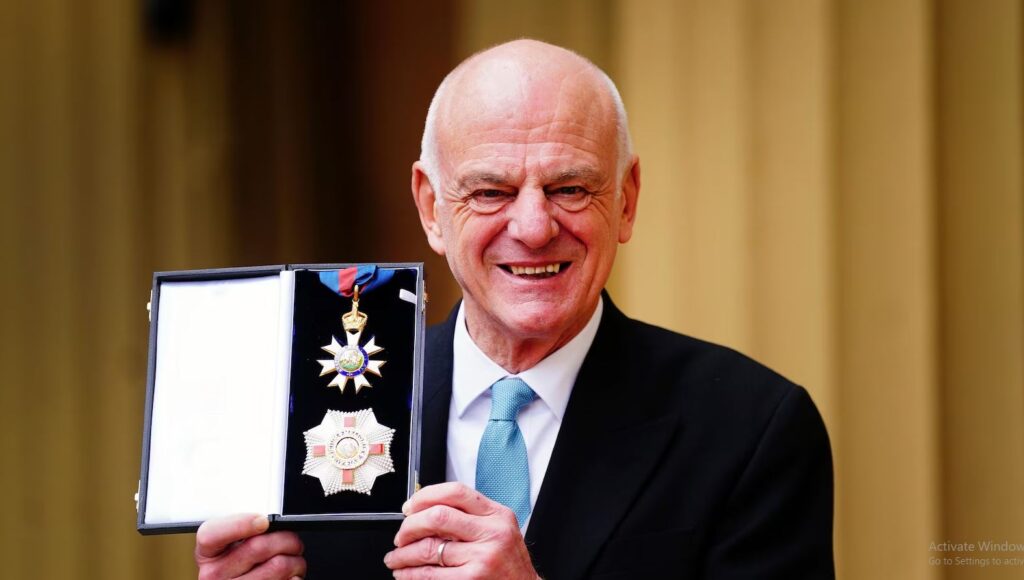Sir David Nabarro, an internationally respected British physician and diplomat, whose work transformed global public health and humanitarian response for more than four decades, passed away on July 25, 2025, at the age of 75. Revered for his leadership in responding to the Ebola outbreak, the COVID-19 pandemic, and a wide range of humanitarian disasters, Nabarro leaves behind a legacy that will continue to shape health governance for generations to come.
A Life Devoted to Global Health and Crisis Management
Born in London in 1949, David Nabarro graduated in medicine from the University of Oxford and furthered his training in public health. He launched his international career with the World Health Organization (WHO) and the United Nations (U.N.), working on health challenges ranging from malaria and cholera to nutrition, environmental crises, and pandemic preparedness.
Throughout his career, Nabarro was not merely an administrator—he was a field operator, a strategic thinker, and a vocal advocate for health equity. He consistently placed himself at the heart of global emergencies, from the 2004 Indian Ocean tsunami to the West Africa Ebola epidemic and the SARS-CoV-2 pandemic. His work often involved coordinating cross-border strategies, mobilizing vast international coalitions, and advocating for underrepresented populations.
Spearheading the Global Response to Ebola
In 2014, as Ebola ravaged parts of West Africa, U.N. Secretary-General Ban Ki-moon appointed David Nabarro as the U.N. Special Envoy on Ebola. His mission was clear but formidable: align fragmented global efforts into a unified response. Nabarro’s coordination ensured that funding, personnel, and supplies reached the epicenters of the crisis in Guinea, Liberia, and Sierra Leone.
Nabarro was not just a symbolic leader—he visited remote villages, met with local health officials, and engaged tribal leaders, showing a deep respect for cultural context. Under his leadership, global transmission rates dropped significantly, and international agencies learned key lessons about the importance of community engagement, rapid response teams, and decentralized care systems.
A Central Figure During the COVID-19 Pandemic
As the COVID-19 pandemic emerged in late 2019 and surged in early 2020, the WHO named David Nabarro as one of six Special Envoys on COVID-19. Tasked with advising world leaders and health ministers, Nabarro again became the voice of global cooperation, promoting public trust, data transparency, and science-based decision-making.
He advocated for non-pharmaceutical interventions (NPIs) such as masks, social distancing, and responsible reopening strategies. He urged caution against prematurely lifting restrictions and criticized the misuse of lockdowns without adequate social protections. In numerous interviews and global briefings, he warned that “the virus respects no borders”, urging coordinated international policies.
Survivor of Conflict and Witness to Devastation
Nabarro’s courage extended beyond health crises. In 2003, he was inside the U.N. headquarters in Baghdad when it was bombed by terrorists, killing 22 people. Despite being injured and shaken, he treated wounded colleagues on the spot. That act of resilience and compassion became emblematic of his fieldwork-driven leadership style—he never distanced himself from frontline risks.
He later reflected on that experience, not with fear, but with a deepened sense of purpose: to work even harder for those living amid war, poverty, and disease. His approach was always hands-on, practical, and unwavering.
Recognized Global Leader and Honored Humanitarian
Throughout his storied career, Nabarro held senior leadership roles, including:
- Executive Director of the WHO’s Roll Back Malaria initiative (1999–2005)
- Coordinator for the Scaling Up Nutrition (SUN) Movement, which aimed to combat childhood malnutrition
- Special Adviser on the 2030 Agenda for Sustainable Development to the U.N. Secretary-General
In 2017, he ran for WHO Director-General, garnering widespread support and finishing as runner-up. Despite the result, he continued to influence global health strategies through independent platforms and advisory roles.
In 2018, he was awarded the World Food Prize for his transformative work on food systems and nutrition equity. Later, in 2023, King Charles III knighted him as a Knight Commander of the Order of St Michael and St George, honoring his unparalleled contribution to global health diplomacy.
Legacy Through 4SD and Mentorship
In recent years, Nabarro co-founded 4SD (Skills, Systems & Synergies for Sustainable Development), a Switzerland-based initiative focused on training the next generation of global health and development leaders. Through 4SD, he mentored young professionals and mid-career experts, sharing frameworks for systems thinking, sustainable development, and ethical leadership.
Under his guidance, the program expanded its reach across multiple continents, influencing policy experts, NGOs, and governmental bodies. Nabarro’s mentorship was deeply personal—he often followed up with mentees, helping them navigate real-world dilemmas with integrity and insight.
Champion of Health Equity and Sustainable Systems
What distinguished David Nabarro was his holistic understanding of health. For him, public health was not just about eradicating disease—it was about empowering communities, ensuring food security, addressing climate change, and creating resilient health systems.
He fiercely opposed the idea that global health should be driven by profit or geopolitical interests. Instead, he believed in human-centered policies rooted in equity, inclusion, and dignity. His deep concern for the Global South, for women and children, and for indigenous populations was reflected in every position he held.
He regularly spoke out against vaccine nationalism, urging richer nations to share surplus doses during COVID-19. He remained a vocal critic of supply chain inequalities, warning that unless health systems were overhauled and localized, the world would remain vulnerable to pandemics.
Global Tributes and Personal Remembrances
Upon the announcement of his death, WHO Director-General Tedros Adhanom Ghebreyesus paid tribute:
“David was a great champion of global health and health equity, and a wise, generous mentor to countless individuals. His work touched and impacted so many lives across the world.”
Former U.N. officials, global leaders, and health ministers echoed this sentiment, many citing Nabarro as one of the most influential public health leaders of the 21st century. His colleagues remembered him not only for his intellect, but for his humility, clarity of vision, and unstoppable energy.
Conclusion: The Enduring Voice of Conscience in Global Health
Sir David Nabarro’s death marks the end of an era, but his teachings, strategies, and moral compass will continue to shape international responses to health and humanitarian challenges. At a time when the world faces complex crises—climate change, emerging pandemics, and growing inequality—his model of compassionate, science-based leadership stands as a blueprint for future generations.
More than a doctor, envoy, or diplomat, David Nabarro was a guardian of global conscience, a man who gave voice to the world’s most vulnerable, and who never stopped fighting for a healthier, more just planet.
May his legacy inspire action, courage, and unity across borders and disciplines.

